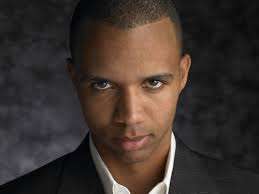Crockfords Victorious in Phil Ivey UK Edge-Sorting Case
Breaking news from London, where a British judge has ruled in favor of London’s swanky Crockfords Casino, which was sued by famed US poker player Phil Ivey for refusing to pay £7.7 million (USD $12.4 million) that Ivey won during two trips to the casino in August of 2012, while in London for a major poker event.
In a ruling issued earlier today, Britisih Justice John Mitting ruled that Crockfords would not have to remit the £7.7 million in “winnings” from the two 2012 sessions that Ivey had accumulated. Crockfords had refused to wire the winnings back to Ivey’s Mexico-based bank account, alleging that the “edge sorting” technique employed by Ivey and female companion Cheung Yin “Kelly” Sun at the casino’s high-stakes punto banco tables was a form of cheating and amounted to unfair play.
 Crockfords did return Ivey’s initial wagering stake of £1 million shortly after the poker pro’s two visits, which prompted the lawsuit by Ivey, filed in the spring of 2013, after his attempts to negotiate with the casino were rebuffed. Ivey has since become involved in a separate case in the United States involving the Atlantic City Borgata Casino and Hotel, which paid a similar amount to Ivey in winnings connected to four other punto banco sessions where a similar edge-sorting technique was employed by Ivey and Sun, an accomplished advantage player who has been referred to as the “Queen of Sorts” and who has been banned from other casinos in the past.
Crockfords did return Ivey’s initial wagering stake of £1 million shortly after the poker pro’s two visits, which prompted the lawsuit by Ivey, filed in the spring of 2013, after his attempts to negotiate with the casino were rebuffed. Ivey has since become involved in a separate case in the United States involving the Atlantic City Borgata Casino and Hotel, which paid a similar amount to Ivey in winnings connected to four other punto banco sessions where a similar edge-sorting technique was employed by Ivey and Sun, an accomplished advantage player who has been referred to as the “Queen of Sorts” and who has been banned from other casinos in the past.
Ivey has admitted using the edge-sorting technique as part of a complex negotiation of special gambling terms in an attempt to gain an edge in the game, which under normal circumstances is a house-banked version of baccarat with no skill element involved, that results in a slight edge (a little over 1%) for the casino.
Crockfords was enthusiastic but terse in its first response to Judge Mitting’s decision. A brief statement from a casino spokesman read, “A spokesman for the casino said: “Crockfords is pleased with the judgment of the High Court today supporting its defense of a claim by Mr Ivey.”
“It is our policy not to discuss our clients’ affairs in public and we very much regret that proceedings were brought against us,” continued the Crockfords statement. “We attach the greatest importance to our exemplary reputation for fair, honest and professional conduct and today’s ruling vindicates the steps we have taken in this matter.”
Through his own spokesman, Ivey declared that he was “obviously disappointed” with Mitting’s ruling.
“I am pleased that the judge acknowledged in court that I was a truthful witness,” said Ivey, through his spokesman. “I believe that what we did was a legitimate strategy and we did nothing more than exploit Crockfords’ failures to take proper steps to protect themselves against a player of my ability.”
“Clearly today the judge did not agree,” Ivey added.
The ruling also included a refusal for permission to appeal the decision through Mitting’s court, though British law allows Ivey’s lawyers to file an appeal directly, thus bypassing that technical step. Ivey and his attorneys have yet to announce if they will attempt an appeal.
Likewise, Crockfords has not declared whether they will attempt to prosecute Ivey and Sun, his sharp-eyed companion, over allegations that the edge-sorting employed was a form of cheating under British law. Since the casino has not already filed a complaint alleging exactly that, it is possible that the casino’s parent company, Malaysia-based Genting, is hoping that the matter will be allowed to rest.
In recent court testimony in the case, Ivey admitted using the edge-sorting technique not only at Crockfords and the Borgata, but at casinos in Australia and Canada as well. Ivey has participated in poker events at Australia’s Crown Casino in Melbourne in the past, while several large Canadian casinos also offer punto banco, such as Ontario’s Niagara Fallsview Casino Resort, though the exact casinos Ivey visited to play the baccarat variant remain undisclosed.
Ivey also appeared in an interview first aired last night on Showtime’s “60 Minutes Sports,” a pay-cable spinoff of the famed, long-running CBS newsmagazine show. In the taped interview, Ivey professes his beliefs that the edge sorting that he and his companion employed is a legal form of advantage play, similar to counting cards at blackjack.
Ivey and his lawyers have reiterated throughout the Crockfords and Borgata cases that he is not cheating by employing the technique. Instead, he maintains that he has employed strategems that take advantage of the casinos’ own lax practices in negotiating gambling arrangements and using susceptible “full bleed” card designs that can be discerned by experts such as Sun. (FlushDraw previously published a detailed explanation of the edge-sorting allegations as they pertained to the Borgata case.)



















COMMENTS